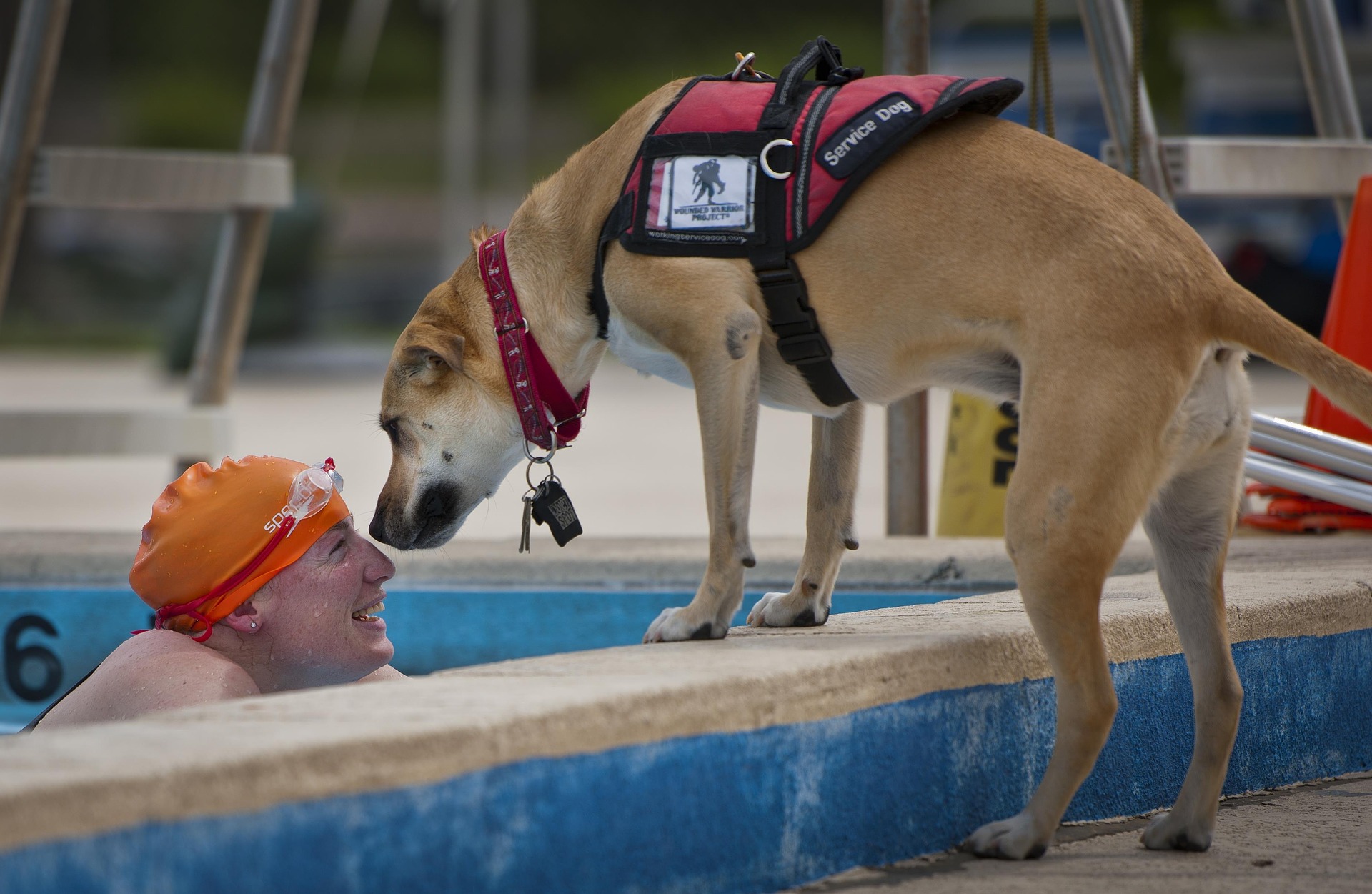Dogs have been living with humans for over 30,000 years and have likely evolved to recognize emotional cues from their favorite humans. Studies have proven the benefits of dogs to help people cope with stress, depression and anxiety. But there are several levels of support and service dogs which people typically rely on to assist them. Their classification will determine what ailments they can help with, as well as their access into public places normally not accessible to animals.
It is especially touching when dogs who have been rescued from shelters are trained to bring love and offer support to humans who are struggling. These dogs are described by their owners as incredibly affectionate animals.
Service Dogs
Service dogs are most often used to help individuals with impaired mobility, low vision or blindness, deafness or other disability such as those caused by diabetes, asthma, autism, bipolar disorder, panic attacks, PTSD or social anxiety.
These canines are often trained to help with specific tasks such as helping someone get out of bed, walk them across the street, or retrieve items for their owners. Any breed is considered acceptable to be trained as a service dog, although some do rise above others – such as poodle, German shepherd, golden retriever and collie.
Service dog access to public places, restaurants, airplanes, apartments and more are protected by the Americans with Disabilities Act, Air Carrier Access Act and the Fair Housing Act.
Emotional Support Dogs
Emotional support dogs assist their owners with day to day anxiety problems brought on by PTSD, social phobias or panic attacks. They can also help their owners to cope with the stress brought on by certain triggering events, such as airplane flights. These very special dogs have all of the access that service dogs do and bring love wherever they go.
Popular breeds often put into service as emotional support dogs include yorkies, German shepherds, corgis,
Labrador retrievers, pugs and greyhounds. They are mentioned in both the Air Carrier Access Act and the Fair Housing Act.
Therapy Dogs
A therapy dog is a canine specifically trained to provide support, comfort and affection to individuals in nursing homes, hospitals, retirement homes, schools, libraries, hospices and even disaster areas. Although they perform an important function, therapy dogs are not covered under the Federal laws listed above, nor do they have public access rights in places such as hotels or restaurants. They are given special exceptions for the places they will be “working”, and the right to be there is granted by the facility directly. Therapy dogs must prove that they can block out distractions, exhibit a consistent comfort level around diverse people with various disabilities, and do not “spook easily”.
Among some of the breeds known to make great therapy dogs are French bulldogs, golden retrievers, miniature poodles, Pomeranians, dachshunds, beagles and Maltese.
Here’s a Hint: If you have a service dog, you may wish to register him with an official registry, such as the United States Service Dog Registry. Registering your service dog will provide documentation & ID tags which will help your dog to gain access into typically restricted areas.
Gulf Coast K9 Dog Trainers provide obedience and behavioral training to Sarasota and Bradenton dogs of all breeds. If you are looking to train your dog to be a service dog and need some help, give us a call.





